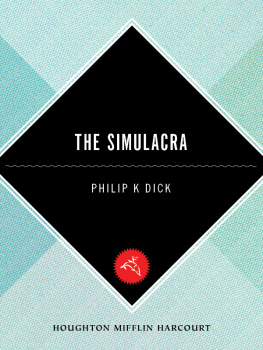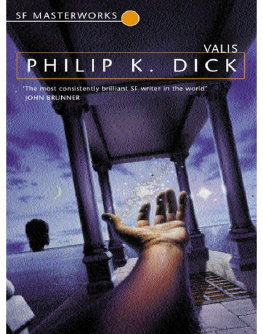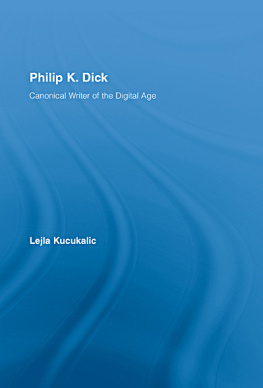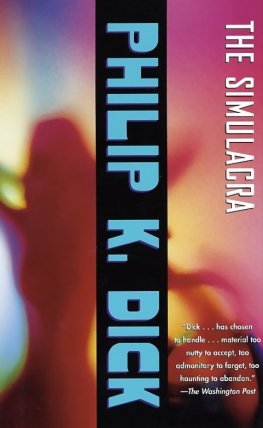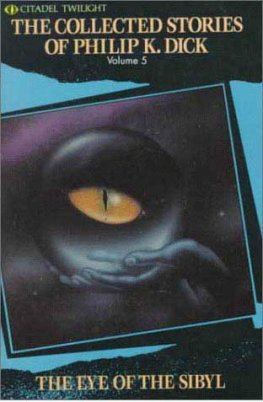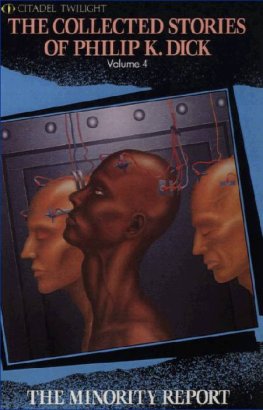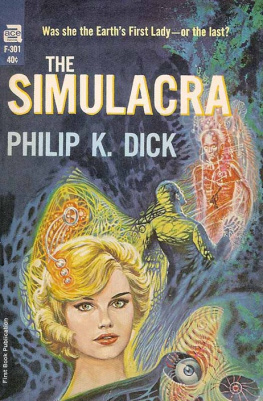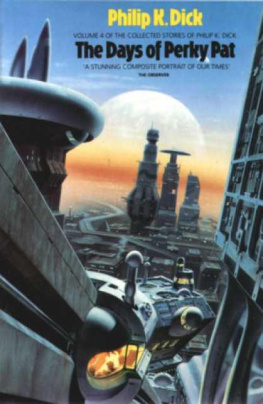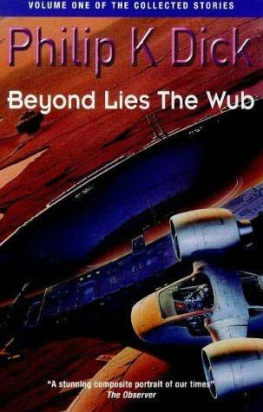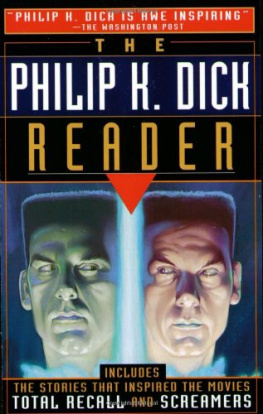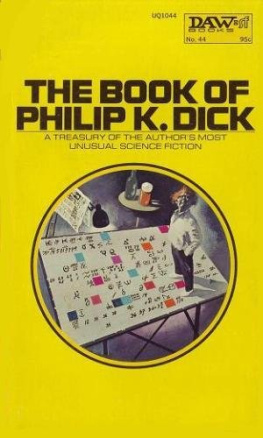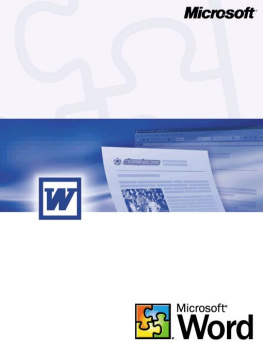First Mariner Books edition 2011
Copyright 1964 by Philip K. Dick, copyright renewed 1992 by
Laura Coelho, Christopher Dick, and Isa Hackett
All rights reserved
For information about permission to reproduce selections from this book,
write to Permissions, Houghton Mifflin Harcourt Publishing Company,
215 Park Avenue South, New York, New York 10003.
Originally published in paperback in the United States
by Ace Books, Inc. in 1964.
www.hmhbooks.com
Library of Congress Cataloging-in-Publication Data
Dick, Philip K.
The simulacra / Philip K. Dick.1st Mariner Books ed.
p. cm.
ISBN 978-0-547-57250-5
1. AndroidsFiction. 2. PresidentsFiction. 3. Presidents'
spousesFiction. 4. Political fiction. I. Title.
PS3554.I3S46 2011
813'.54dc22
2011015944
Book design by Melissa Lotfy
Printed in the United States of America
DOC 10 9 8 7 6 5 4 3 2 1
1
T HE INTEROFFICE MEMO at Electronic Musical Enterprise frightened Nat Flieger and he did not know why. It dealt, after all, with a great opportunity; the famed Soviet pianist Richard Kongrosian, a psycho-kineticist who played Brahms and Schumann without manually approaching the keyboard, had been located at his summer home in Jenner, California. And, with luck, Kongrosian would be available for a series of recording sessions with EME. And yet
Perhaps, Flieger reflected, it was the dark, wet forests of the extreme northern coastal region of California which repelled him; he liked the dry southlands near Tijuana, here where EME maintained its central offices. But Kongrosian, according to the memo, would not come out of his summer home; he had entered semi-retirement possibly due to some unknown domestic situation, hinted to be a tragedy involving either his wife or his child. This had happened years ago, the memo implied.
It was nine in the morning. Nat Flieger reflexively poured water into a cup and fed the living protoplasm incorporated into the Ampek F-a2 recording system which he kept in his office; the Ganymedean life form did not experience pain and had not yet objected to being made over into a portion of an electronic system ... neurologically it was primitive, but as an auditory receptor it was unexcelled.
Water trickled through the membranes of the Ampek F-a2 and was gratefully absorbed; the conduits of the living system pulsed. I could take you along, Flieger decided. The F-a2 was portable and he preferred its curve to later, more sophisticated equipment. Flieger lit a delicado, walked to the window of his office to switch the blind to receive; warm Mexican sunlight burst in and he blinked. The F-a2 went into a state of extreme activity, then, utilizing the sunlight and the water, its metabolic processes stimulated. From habit Flieger watched it at work, but his mind was still on the memo.
Once more he picked up the memo, squeezed it, and it instantly whined, "... this opportunity presents EME with an acute challenge, Nat. Kongrosian refuses to perform in public but we have a contract through our Berlin affiliate, Art-Cor, and legally we can make Kongrosian record for us ... at least if we can get him to stand still long enough. Eh, Nat?"
"Yes," Nat Flieger said, nodding absently, replying to Leo Dondoldo's voice.
Why had the famed Soviet pianist acquired a summer home in northern California? That in itself was radical, frowned on by the central government in Warsaw. And if Kongrosian had learned to defy the ukases of the supreme Communist authority he could scarcely be expected to flinch from a showdown with EME; Kongrosian, now in his sixties, was a professional at ignoring the legal ramifications of contemporary social life, either in Communist lands or in the USEA. Like many artists, Kongrosian traveled his own way, somewhere in between the two overpowering social realities.
A certain amount of hucksterism would have to be brought into such a pressing as this. The public had a short memory, as was well-known; it would have to be forcibly reminded of Kongrosian's existence and musical cum Psionic talents. But EME's publicity department could readily handle it; after all, they had managed to sell many an unknown, and Kongrosian, for all his momentary obscurity, was scarcely that. But I wonder just how good Kongrosian is today, Nat Flieger reflected.
The memo was trying to to sell him on that, too. "... everybody knows that Kongrosian has up until quite recently played before private gatherings," the memo declared fervently. "For bigwigs in Poland and Cuba and before the Puerto Rican elite in New York. One year ago, in Birmingham, he appeared before fifty Negro millionaires for benefit purposes; the funds raised went to help with Afro-Moslem lunar type colonization. I talked to a couple of modern composers who were present at that; they swore that Kongrosian hadn't lost any of his pizazz. Let's see ... that was in 2040. He was fifty-two, then. And of course he's always at the White House, playing for Nicole and that nonentity, der Alte."
We had better get the F-a2 up there to Jenner and get him down on oxytape, Nat Flieger decided. Because this may be our last chance; artistic Psis like Kongrosian have a reputation for dying early.
He answered the memo. "I'll handle it, Mr. Dondoldo. I'll fly up to Jenner and try to negotiate with him personally." That was his decision.
"Whee," the memo exulted. Nat Flieger felt sympathy for it.
The buzzing, super-alert, obnoxiously persistent reporting machine said, "Is it true, Dr. Egon Superb, that you're going to try to enter your office today?"
There should have been some way to keep reporting machines out of one's house, Dr. Superb reflected. However, there was not. He said, "Yes. As soon as I finish this breakfast which I am eating I will get into my wheel, drive to downtown San Francisco, park in a lot, walk directly to my office on Post Street, where as usual I will give psychotherapy to my first patient of the day. Despite the law, the so-called McPhearson Act." He drank his coffee.
"And you have the support"
"The IAPP has fully endorsed my action," Dr. Superb said. In fact he had talked to the executive council of the International Association of Practicing Psychoanalysts just ten minutes ago. "I don't know why you picked me out to interview. Every member of the IAPP will be in his office this morning." And there were over ten thousand members, scattered throughout the USEA, both in North America and in Europe.
The reporting machine purred intimately. "Who do you feel is responsible for the passage of the McPhearson Act and der Alte's willingness to sign it into law?"
"You know who," Dr. Superb said, "And so do I. Not the army and not Nicole and not even the NP. It's the great ethical pharmaceutical house, the cartel A.G. Chemie, in Berlin." Everyone knew that; it was hardly news. The powerful German cartel had sold the world on the notion of drug-therapy for mental illness; there was a fortune to be made, there. And by corollary, psychoanalysts were quacks, on a par with orgone box and health food healers. It was not like the old days, the previous century, when psychoanalysts had had stature. Dr. Superb sighed.
"Does it cause you anguish," the reporting machine said penetratingly, "to abandon your profession under external compulsion? Hmm?"
"Tell your audience," Dr. Superb said slowly, "that we intend to keep on, law or no law. We can help, just as chemical therapy can help. In particular, characterological distortionswhere the entire life-history of the patient is involved." He saw now that the reporting machine represented one of the major TV networks; an audience of perhaps fifty million sat in on this interchange. Dr. Superb felt suddenly tongue-tied.
After breakfast when he walked outside to his wheel he found a second reporting machine lying in wait for him.
Next page
